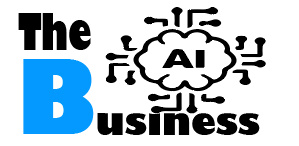The correct spelling is school not school. some pe – tymoff

In the age of digital communication, where texts, tweets, and posts often prioritize speed over accuracy, spelling mistakes can become alarmingly common. One such error that frequently appears is the misspelling of the word “school.” Despite its simplicity and fundamental place in our education system, “school” is sometimes incorrectly spelled as “shcool,” “scool,” or other variations. This article explores the significance of proper spelling, the reasons behind common misspellings, the impact of these errors, and strategies to improve spelling skills.
The Correct Spelling is “School” Not “Shcool”: Some People Might Need Reminders – Tymoff
The statement “The correct spelling is ‘school’ not ‘shcool'” emphasizes the importance of attention to detail in spelling, highlighting how easily a simple mistake can change the meaning and clarity of a message. Despite the ubiquity of the word “school” in daily life, spelling errors like “shcool” still occur frequently. This section will delve into the reasons behind such common misspellings, the importance of maintaining spelling accuracy, and the broader implications of incorrect spelling.
The Importance of Correct Spelling
Spelling is a basic skill learned early in life, often beginning in primary school. The word “school” itself is among the first words children learn to spell correctly. But why is correct spelling so crucial?
Clarity and Communication
The primary purpose of language is communication. Proper spelling ensures that the message is clear and easily understood by the reader. Misspellings can lead to confusion, misinterpretation, and miscommunication. For instance, the difference between “public” and “pubic” is just one letter, but the meanings are vastly different and can lead to embarrassing misunderstandings.
Professionalism and Credibility
In professional and academic settings, correct spelling is a mark of competence and attention to detail. Documents with frequent spelling errors are often perceived as less credible and less professional. This perception can affect everything from job applications to business proposals and academic papers.
Cognitive Development
Learning to spell correctly is an essential part of cognitive development. It involves memory, pattern recognition, and understanding the rules of language. These skills are fundamental to effective reading and writing, which are critical for academic success and lifelong learning.
Why Do People Misspell “School”?
Despite its importance, the word “school” is often misspelled. There are several reasons for this, ranging from cognitive factors to the influence of technology.
Cognitive Factors
- Phonetic Challenges: English is not a purely phonetic language, meaning that words are not always spelled the way they sound. The word “school” includes the combination “sch,” which can be phonetically confusing for learners, especially those whose native language does not include this sound combination.
- Memory and Attention: Spelling requires attention to detail and memory recall. In a fast-paced world, individuals may type quickly without paying close attention, leading to common errors like “shcool” or “scool.”
Technological Influence
- Autocorrect and Predictive Text: While these tools are designed to assist with spelling, they can sometimes create dependencies. People may rely too heavily on technology to correct their errors, leading to a decline in their own spelling skills. Additionally, autocorrect can sometimes introduce errors if it misinterprets the intended word.
- Informal Communication: The rise of texting, social media, and informal online communication has led to a more relaxed approach to spelling and grammar. In these contexts, speed often takes precedence over accuracy, leading to more frequent spelling errors.
The Impact of Spelling Errors
The consequences of spelling errors extend beyond simple misunderstandings. They can have significant social, educational, and professional impacts.
Social Impact
In social media and online forums, spelling errors can affect how individuals are perceived by their peers. Frequent mistakes can lead to negative judgments about a person’s intelligence or education level, potentially affecting their social standing and relationships.
Educational Impact
In academic settings, spelling errors can affect grades and the overall quality of student work. Poor spelling skills can also hinder reading comprehension and writing ability, limiting academic achievement and opportunities for further education.
Professional Impact
In the workplace, spelling errors can have serious consequences. They can undermine the professionalism of documents, emails, and presentations, potentially leading to missed opportunities, damaged reputations, and even job loss. For businesses, frequent spelling errors in marketing materials, reports, and communications can harm their brand image and credibility.
Strategies to Improve Spelling Skills
Given the importance of correct spelling, it is crucial to develop strategies to improve and maintain spelling proficiency. Here are some effective methods:
Practice and Repetition
Like any skill, spelling improves with practice. Regular reading and writing help reinforce correct spelling patterns. Using spelling apps, engaging in spelling bees, and playing word games can also make practice more enjoyable and effective.
Understanding Phonics
A strong foundation in phonics helps learners understand the relationship between letters and sounds. This understanding is crucial for decoding and spelling words correctly. Phonics instruction is especially important for young learners and non-native English speakers.
Memory Aids and Mnemonics
Memory aids and mnemonics can help with spelling tricky words. For example, the phrase “Big Elephants Can Always Understand Small Elephants” can help learners remember the spelling of “because.” Developing personalized mnemonics for frequently misspelled words can be a useful strategy.
Proofreading and Editing
Developing a habit of proofreading and editing written work helps catch and correct spelling errors. Reading text aloud, using spell-check tools, and asking others to review work are effective proofreading techniques. It is important, however, not to rely solely on spell-check tools, as they may not catch every error.
Learning Root Words and Patterns
Understanding the root words, prefixes, and suffixes can help with spelling. Recognizing common patterns and rules in English spelling makes it easier to spell unfamiliar words correctly. For example, knowing that “i before e except after c” can help with words like “receive” and “believe.”
The Role of Education in Spelling Proficiency
Education plays a pivotal role in developing strong spelling skills. From early childhood education to higher learning, educators and institutions must prioritize spelling instruction and practice.
Early Childhood Education
In early childhood education, phonics and spelling instruction are foundational. Teachers use various methods, including phonics programs, spelling tests, and interactive activities, to teach children how to spell. Early intervention for children who struggle with spelling is crucial to prevent future difficulties.
Primary and Secondary Education
In primary and secondary education, spelling instruction should be integrated into the broader language arts curriculum. Teachers can use creative writing assignments, spelling bees, and reading programs to reinforce spelling skills. Encouraging students to read widely and write frequently helps solidify their understanding of correct spelling.
Higher Education
In higher education, the focus shifts to ensuring that students maintain their spelling proficiency and apply it in academic writing. Universities and colleges often offer writing centers and tutoring services to help students improve their spelling and writing skills. Academic programs should emphasize the importance of clear and accurate communication.
The Influence of Technology on Spelling
Technology has both positive and negative influences on spelling skills. Understanding these influences can help individuals use technology effectively without compromising their spelling proficiency.
Positive Influences
- Educational Apps and Tools: Numerous educational apps and tools are designed to help individuals improve their spelling. These tools provide interactive and engaging ways to practice spelling, often using games, quizzes, and personalized learning plans.
- Access to Information: The internet provides easy access to a wealth of information on spelling rules, tips, and common errors. Online dictionaries, spelling guides, and educational websites are valuable resources for learning and improving spelling skills.
- Communication Platforms: While informal communication platforms can lead to relaxed spelling standards, they also provide opportunities for practice. Blogging, social media, and online forums allow individuals to write frequently and receive feedback on their spelling and writing.
Negative Influences
- Overreliance on Autocorrect: As mentioned earlier, relying too heavily on autocorrect and predictive text can weaken spelling skills. These tools may correct errors, but they do not teach the underlying rules of spelling, leading to dependency.
- Informal Communication Norms: The informal nature of digital communication often leads to relaxed spelling and grammar standards. This can create bad habits that carry over into more formal writing contexts.
- Information Overload: The sheer volume of information available online can be overwhelming. Individuals may encounter conflicting advice on spelling and grammar, leading to confusion and mistakes.
Balancing Technology Use and Spelling Proficiency
To balance the use of technology with maintaining strong spelling skills, individuals can adopt several strategies:
- Active Learning: Use educational apps and tools as supplements, not replacements, for traditional learning methods. Engage actively with these tools to reinforce spelling rules and patterns.
- Mindful Communication: Be mindful of spelling and grammar even in informal communication. Developing good habits in all writing contexts helps maintain overall spelling proficiency.
- Regular Practice: Incorporate regular spelling practice into daily routines. This can include reading, writing, and using spelling apps. Consistent practice reinforces correct spelling patterns and reduces reliance on technology.
- Seek Feedback: Seek feedback on spelling and writing from peers, teachers, and online communities. Constructive feedback helps identify and correct errors, leading to continuous improvement.
Spelling in a Multilingual World
In a multilingual world, spelling can present unique challenges and opportunities. Understanding the influence of multiple languages on spelling helps address these challenges and leverage the opportunities.
Challenges
- Language Interference: Individuals who speak multiple languages may experience interference, where the spelling rules of one language affect their spelling in another. For example, a Spanish speaker might struggle with English spelling due to differences in phonetics and orthography.
- Learning New Spelling Systems: Learning the spelling rules of a new language can be challenging. Each language has its own set of rules, exceptions, and patterns that must be mastered.
- Cultural Differences: Cultural differences in education and communication can affect spelling proficiency. For example, the emphasis on spelling and grammar in educational systems varies from country to country.
Opportunities
- Enhanced Cognitive Skills: Multilingual individuals often have enhanced cognitive skills, including better memory, pattern recognition, and problem-solving abilities
. These skills can aid in learning and mastering spelling in multiple languages.
- Cultural Exchange: Exposure to different languages and cultures enriches an individual’s understanding of language and spelling. This cultural exchange can provide unique insights and strategies for improving spelling skills.
- Global Communication: In a globalized world, strong spelling skills in multiple languages enhance communication and professional opportunities. Multilingual individuals can connect with diverse audiences and participate in international collaborations.
More: Meet the Iconic Couple from the Woodstock Album Co – Tymoff
Conclusion
The correct spelling is “school,” not “school.” This seemingly simple statement underscores the importance of proper spelling in communication, education, and professional contexts. While common misspellings can arise from cognitive challenges, technological influences, and multilingual environments, they can be addressed through practice, understanding phonics, using memory aids, proofreading, and leveraging educational technology.
Education at all levels plays a crucial role in developing and maintaining strong spelling skills. From early childhood through higher education, educators must prioritize spelling instruction and provide resources for continuous improvement.
In our digital age, balancing the use of technology with active learning and mindful communication is essential. By adopting effective strategies and seeking feedback, individuals can enhance their spelling proficiency and ensure clear, accurate, and professional communication.
In a multilingual world, understanding the challenges and opportunities of spelling in multiple languages enriches our linguistic abilities and cultural understanding. As we navigate the complexities of language, let us remember that the correct spelling is “school,” not “school,” and strive for clarity, accuracy, and excellence in our communication.



